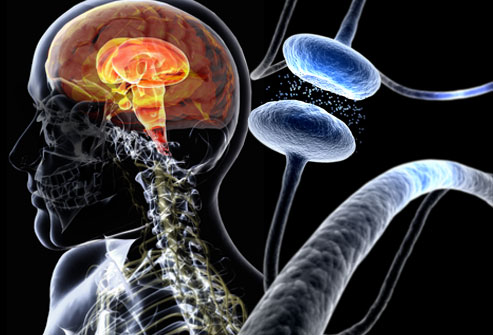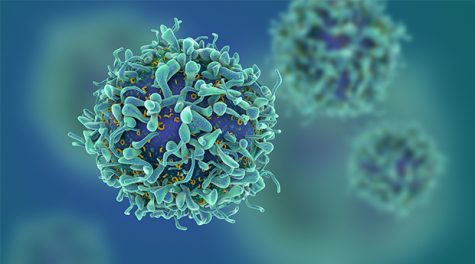Cannabis study: CBD relieves the symptoms of Parkinson’s in patients
After consuming CBD, the vast majority of study subjects claimed that they had a better night’s sleep and experienced fewer motor symptoms

Fresh research into the benefits of using cannabis to treat Parkinson’s disease is giving doctors all the more reason to prescribe weed-based treatments to diagnosed patients.
Cannabis for Parkinson’s disease is not necessarily a new subject. Scientists have long investigated the potential of using cannabis to relieve the symptoms of this disorder of the central nervous system, which exhibits a range of symptoms in patients that affects movement, such as tremors.
The neurodegenerative disease is already listed as a qualifying condition in a handful of medical cannabis-friendly states; Connecticut, Florida, Illinois, Louisiana, Massachusetts, Michigan, Missouri, New Hampshire, New Mexico, New York, Ohio, Pennsylvania and Vermont.

Leehey Maureen Leehey, MD is the director of the CU School of Medicine’s Movement Disorders Division. She led a recent study focused on the effects of using CBD to relieve Parkinson’s symptoms.
CBD (cannabidiol) is a non-psychoactive cannabinoid that can be derived from cannabis and hemp. It possesses anti-inflammatory properties and does not induce the ‘high’ that weed is commonly associated with.
“There is a lot of literature that suggests CBD might slow down Parkinson’s disease,” Leehey explained. “This research is in basic science and in animal studies. We really wanted to look at how it could potentially benefit our patients. So we thought let’s do the research.”
Neurology professor overcame regulatory hurdles to conduct study on cannabis for Parkinson’s
Leehey’s experience in working with Parkinson’s sufferers spans over 30 years. She spends most of her time exploring the ways in which cannabis treatments might help.
However, cannabis’ strict Schedule I status makes it tricky for scientists to legally conduct studies on the plant’s therapeutic potential, such as using cannabis for Parkinson’s.
The Drug Enforcement Administration (DEA) puts cannabis in the same category as heroin, LSD and cocaine. With such restrictions in place, the road leading to Leehey and her team’s findings was not without its speed bumps.
Harsh regulations meant that Leehey first had to seek compliance prior to commencing a study that involved treating Parkinson’s patients with cannabis.
“Once [cannabis] became legalized recreationally in Colorado, our patients started asking about how it could help them,” she said, adding that, “there was a lot of interest, and we wanted to look at how we could help our patients make informed decisions about it.”
She devoted two years to contacting various governing bodies in an attempt to gain compliance. Her efforts were successful.
“We were fortunate in that CU Anschutz provided us with the resources we needed to overcome obstacles and really make this study possible,” said Leehey who, after receiving regulatory approval, was awarded a grant from the Colorado Department of Public Health and Environment (CDPHE) to study cannabis for Parkinson’s.
Ventilated room was used to conduct study on cannabis for Parkinson’s Disease
A total of 13 patients took part in the study on cannabis for Parkinson’s, each of whom was administered with 400 mg of CBD. The amount of CBD administered to each patient increased as time progressed.
Inside a ventilated room specially designed for the experiment, study subjects were administered with cannabis-based medicines. No access to the medicine was allowed when study participants were not consuming the substance; a dual-key lock was used to prevent access.
Patients experienced fewer symptoms after using CBD to treat Parkinson’s disease
 After consuming CBD, the vast majority of study subjects claimed that they had a better night’s sleep.
After consuming CBD, the vast majority of study subjects claimed that they had a better night’s sleep.
What’s more, irritability levels decreased, as well as motor symptoms. Some of the most common motor symptoms associated with Parkinson’s Disease include slowness and stiffness.
Patients reported that the benefits of using cannabis for Parkinson’s far outweighed the side effects. According to Leehey, the side effects were mild.
The successful outcome of this study has prompted her to conduct another one.
Leehey’s forthcoming study, for which she is currently recruiting participants, will focus on the benefits of cannabis’ primary psychoactive cannabinoid, THC (tetrahydrocanabinol). THC is the mind-altering substance responsible for making users feel ‘stoned’.
Leehey wants other cannabis researchers to receive support in their endeavors
Despite the fact this study on CBD for Parkinson’s is over, Leehey’s efforts to encourage more plant research are ongoing. With help from her team, the Colorado Cannabis Research Consortium (C2RC) was founded.
“CDPHE gave out a few grants for cannabis research. We came together and navigated this research path,” she said. “A lot of researchers get started and then run into problems. We have been there. We want to use this experience to mentor others and really get this research going.”
She says that anyone can join the group, so long as they have a keen interest in cannabis research.












